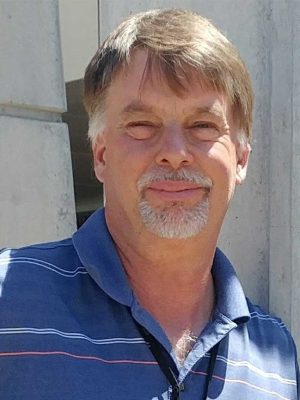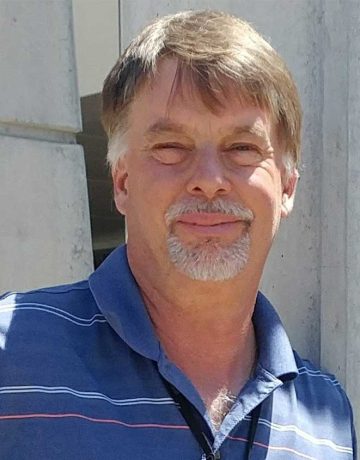KDH physicians answer the question, ‘What does Patient and Family Centred Care mean to you?’
Several years ago, Kemptville District Hospital (KDH) made a commitment to Patient and Family Centred Care, pledging to treat all of its patients and families with respect and dignity, to share information with them, and to encourage them to participate in decisions about their care at the level they choose.
Recently, KDH asked several of its doctors what Patient and Family Centred Care means to them. Their responses follow.
Family Physician: Dr. Penny McGregor, KDH’s Chief of Staff
As a family physician, I am fortunate in that I have the opportunity to really get to know my patients. I have been looking after many of my current patients for years. Over this time we have forged a relationship, and we have built up trust.
For me, Patient and Family Centred Care means asking my patients about their preferences in their treatment plan. I make my treatment recommendations based on medical evidence and clinical judgment, and then I try to collaborate with the patient to assess their preferences and see if we can agree on a treatment plan. Sometimes, however, my best recommendation may not suit the patient’s preferences; they can ultimately choose not to follow it, but I may not change my recommendation if I feel it’s not safe or in their best interest, as it’s my duty to follow clinical guidelines and medical evidence.
It’s about shared decision making. If the patient has totally different goals, they aren’t going to follow the course of treatment I recommend, so we try to find common ground. That’s why it’s important for patients to feel comfortable asking questions. By asking questions, we can often identify the point of disagreement about a treatment plan and come to a mutual understanding that both meets the patient’s needs and provides the best medical care.
Sometimes patients in my family practice come in for their appointments with questions they have written out at home. This is a great idea as it ensures they leave the appointment with the information they need to manage their health. The questions can be as straightforward as ‘What is my problem today?’, ‘What do I need to do?’, and ‘Why is it important for me to do this?’ Sometimes, to make sure they have the big picture, patients will ask, ‘Is this my main problem?’
At KDH, local family physicians care for patients who have been admitted to hospital. We do this on a rotating schedule, a week at a time. During this time, we are often able to get to know and build a relationship with patients and their families, depending on how long the patient needs to be in hospital. Then, when the patient’s illness that brought them to hospital has been resolved, we work towards getting the patient ready for discharge home. However, I have noticed that sometimes patients don’t feel ready to go home, or family members don’t feel they can cope with their loved one at home. This happens when a patient may have ongoing medical needs but the acute illness that led to their admission has resolved. That’s when it’s really important for patients and families to know that the patient is back to their baseline and we are confident that their ongoing medical needs can be managed at home with the proper supports, such as nursing visits. Our discharge planner works with patients and families to ensure that these supports are in place before the patient goes home.
Emergency Physician: Dr. Jonathan Rathwell, KDH’s Emergency Department Chief
Because of the way hospital emergency rooms (ERs) work, patients have often been waiting for some time – perhaps hours – before they finally see a doctor. When I walk into the room, I always try to acknowledge the wait and thank them for their patience. This is after I’ve introduced myself and let them know I’ll be caring for them today.
It’s very important to establish trust, even though our time together may be brief. I make a point to listen carefully – to really hear – what my patients have to say. Good doctor-patient communication results in a better experience for my patient, and for me as well.
I encourage my patients to participate in their care, to ask questions, to let us know if they have any concerns. It’s really important that you tell your healthcare provider about any symptoms you may have, your health and family history, and the medications you are taking.
On the other hand, I want patients to know that you can choose not to contribute to a particular conversation. Patient and Family Centred Care means that patients and families are as involved as they want to be in decisions around their care.
Sometimes there are misunderstandings. For example, a patient in the ER could say, ‘I was in a lot of pain and nobody gave me any medication to relieve my suffering while I was waiting to see the doctor.’ This is where sharing information makes a huge difference. Patients may not realize that, depending on your condition or other medical issues, it may not be safe to provide certain pain medications, and as a result medication cannot be given prior to a physician’s assessment. For this reason it is important to communicate to the staff if your pain is getting worse or changing so that we can try and get you seen as quickly as possible.
Surgeon: Dr. Steve Oliver, KDH’s Surgery Department Chief
As a surgeon, I may only see a particular patient a few times. That’s why it’s important to me to establish trust from the beginning.
Dialogue is essential for establishing trust. That means we listen respectfully to each other’s ideas and opinions. Dialogue assumes that different people have pieces of the answer and together we can create a solution.
Oftentimes, patients will be anxious or worried about an upcoming surgical procedure. It’s important to me that I give my patients the support they need to help with anxieties, fears or worries about their procedure.
Sometimes I have to convey information that is difficult for a patient to hear. I try to do that with empathy and honesty, encouraging questions and giving patients a chance to react – they may experience a range of emotions. When there are decisions to be made, I believe if we have established trust, we will be better able to reach a collaborative decision that’s the best one for the patient.
A lot of the information I convey is quite technical. I try to put it into terms that someone outside of the medical field will find accessible. I ask patients to say the information back to me in their own words, to make sure that I have explained things clearly. Although there may be other patients waiting to see me, I try to always take the time to answer any questions and address any concerns my patients may have.
KDH’s CEO, Frank Vassallo, expressed the hospital’s gratitude to its physicians for their commitment to Patient and Family Centred Care. “We are extremely fortunate that our physicians are so dedicated to this philosophy of care,” he said. “We know it has a very positive impact on the experience that our patients and families have here at the hospital.”
KDH would like to know what Patient and Family Centred Care means to you. Contact Patient Relations by email at patientrelations@kdh.on.ca or by mail: Patient Relations, Kemptville District Hospital, 2675 Concession Road, PO Box 2007, Kemptville, ON, K0G 1J0.
About Kemptville District Hospital
Kemptville District Hospital is Accredited with Exemplary Standing, the highest ranking bestowed by Accreditation Canada. Committed to building healthier communities, we are a model of hospital-led integrated health services within the provincial health system. Kemptville District Hospital consistently ranks among the top hospitals in Ontario for both patient and employee satisfaction. We pride ourselves on being a good partner within the system. Kemptville District Hospital provides acute care hospital services, advanced orthopedic care, and primary care management services.
For further information contact:
Jenny Read, Communications Officer
T: 613-258-6133 extension 223
Email: jread@kdh.on.ca

Open ProfileStaff ProfileSteve WebberMaintenance Mechanic, Stationary Engineering Team Lead
Read Profile229,100
x-rays performed at KDH
since 2009

